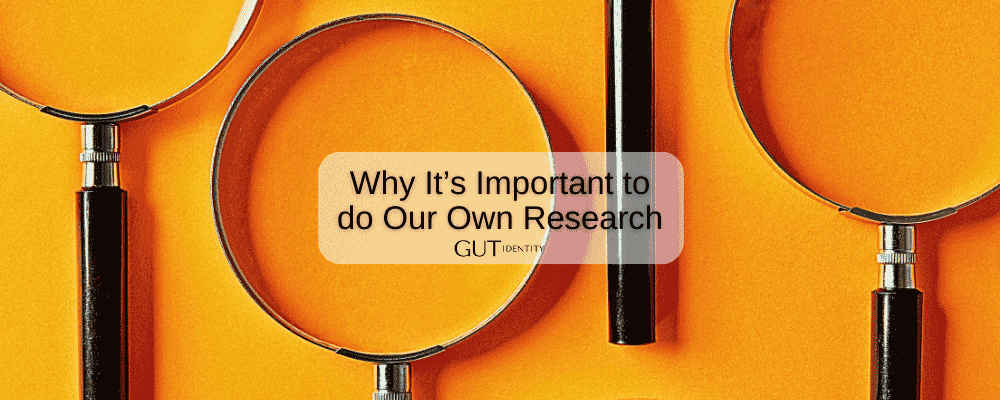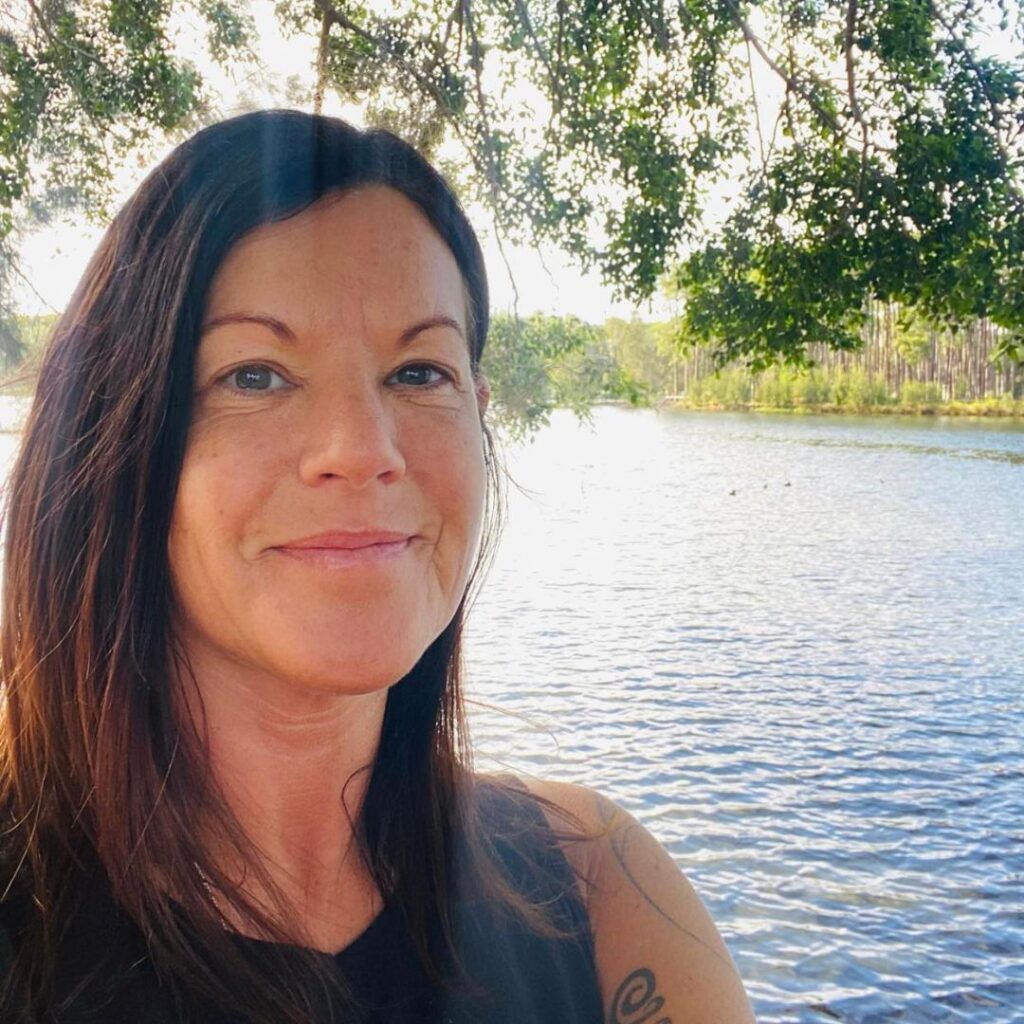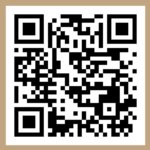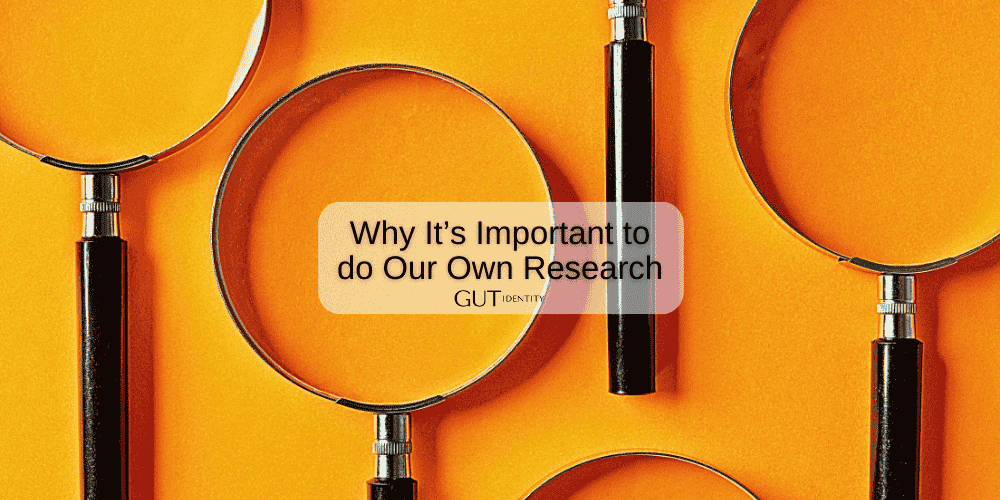
In an age of information, it’s highly important we learn how to do our own research. Because of information overload, learning how to conduct our own research is more important than ever. With countless sources of information available—ranging from reputable studies to misleading headlines—it’s crucial to develop the ability to critically analyse, verify, and synthesise knowledge.
Doing our own research empowers us to make informed decisions, think independently, and avoid misinformation. Whether in academics, business, health, or daily life, mastering research skills allows us to navigate complex issues with confidence and clarity.
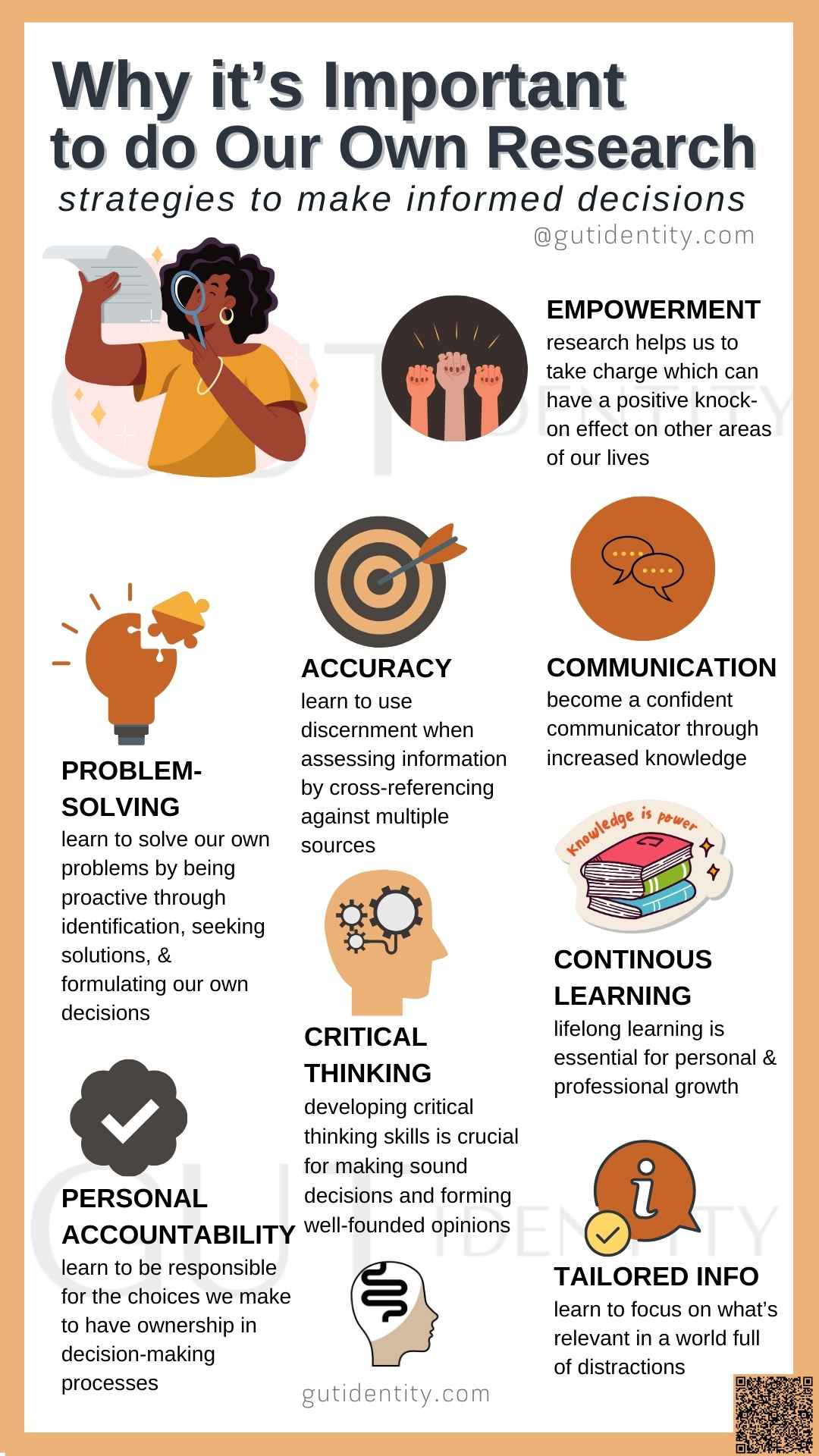
Gaining personal empowerment through researching skills

Conducting research about our health allows us to gather information and knowledge independently. This empowers us to make informed decisions in various aspects of our lives, whether it’s related to our health, our well-being, or our daily routine. It helps us to take charge which can have a positive knock-on effect on other areas of our lives.
Research helps us stay aware of different perspectives, opinions, and information related to a given topic. It broadens our understanding and allows us to consider various viewpoints before forming our own opinions. It also helps us become more self-aware. The more self-awareness we have, the more connection we feel to our bodies. Do your research with an open mind.
Related post
Researching helps improve our ability to think critically
Researching requires critical thinking skills. It encourages us to question information, evaluate sources, and analyse data. Developing critical thinking skills is crucial for making sound decisions and forming well-founded opinions when it comes to understanding our environment. This helps us understand the larger picture and who might be profiting off something and may not always have our best interests at heart.
Continue to ask yourself, who is benefiting from this situation? Me or someone else?
Learning to do our own research helps us be better at solving problems

Research often involves identifying problems, seeking solutions, and making decisions. This process enhances problem-solving skills and fosters a proactive approach to health challenges. Learn to solve your own problems and feel how good that feels.
Instead of placing the power in someone else’s hands, take matters into your own hands. This can help us then be able to solve future problems on our own.
How do we know if something is accuate?

By conducting our own research, we can ensure that the information we gather is accurate and reliable. It helps us avoid misinformation or biased perspectives that might be present in some sources. It allows us to cross-reference things by checking against multiple sources which can help us understand if something doesn’t add up.
One thing to do is to check for conflicts of interest. Who is funding the article, study or program? This will give a big clue as to whether there is a bias, or even if there is possible fraud or corruption occurring.
Researching helps us become more effective communicators

Research skills are essential for effective communication. Whether you are conveying information to others or participating in discussions, the ability to articulate well-researched points enhances your communication effectiveness. This then enables us to feel more confident when talking about societal issues. Knowledge is power and if we understand what we’re talking about, we will be able to get this message across to others which may end up helping them.
Researching supports the process of continuous learning
Engaging in research is a form of continuous learning. It allows us to stay updated on new developments, discoveries, and trends in various fields. Lifelong learning is essential for personal and professional growth. By doing this, we can become our own doctor and learn more about what our bodies (and mind) needs in order to be healthy and happy.
If we conduct in-depth research in a specific area, we can gradually build expertise. This expertise can be valuable in personal decision-making, discussions, or even in professional settings. When we learn about a range of topics, we increase our understanding in other areas of our lives too which can have a positive effect on our general well-being as we learn along the way.
Learning to do our own research helps us to be more accountable for our actions and choices

Taking the initiative to research information places a level of accountability on ourselves. It reinforces the idea that we are responsible for the choices we make, and it encourages a sense of ownership in decision-making processes. It helps us to make healthier choices when we are the ones in charge. For example, if we learn ourselves why a particular food is not good for us, we have taken that knowledge on by ourselves. This helps us to be more responsible for further choices.
This is particularly important when it comes to our health.
Research helps us tailor information to suit our needs

Our research can be tailored to our specific needs and interests. This is especially relevant in fields where individual circumstances, preferences, or requirements play a significant role, such as personal health, or lifestyle decisions. We are currently being bombarded with information that distracts us and takes away our focus.
Doing our own research helps keep our focus placed on what we want to learn rather than information being fed to us. PS. please proceed with caution when getting information from the news or TV – look at alternative media for a different perspective.
Bottom line
In this information age, mastering the art of conducting our own research is essential. With the overwhelming amount of information available—from trustworthy studies to misleading headlines—it’s more important than ever to learn how to critically analyse, verify, and synthesise information. By honing our research skills, we empower ourselves to make informed decisions, think independently, and avoid falling prey to misinformation. Whether in academics, business, health, or everyday life, being adept at research enables us to tackle complex issues with confidence.
Do your own research rather than have information fed to you!
Further reading
Check out this article below ‘Do Your Own Research’ that looks at the possible complications of doing ones own research.
And check out who funds it by doing a little bit of research yourself
And then ask yourself, who benefits from me not doing my own research???

